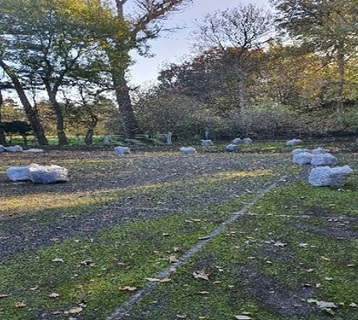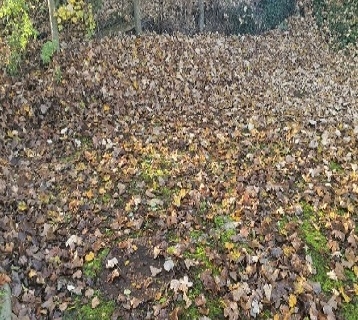Published on: Thursday, 23 December 2021
Last updated: Wednesday, 29 December 2021
Greater Anglia has sent over 3.5 tonnes of leaves – weighing about the same as a hippopotamus – to be composted over the last three years.
The company clears up leaves at seven stations across the network where there is the most waste caused by leaves and vegetation.
Skips placed at Ingatestone and Newport stations in Essex, Broxbourne station in Hertfordshire and Norwich station in Norfolk have been filled with leaves from station car parks and forecourts.
They are then taken by the company’s waste management contractor Veolia to be turned into compost, ideal for fertilising soil.
Greater Anglia set up the scheme, with its cleaning contractors Carlisle Cleaning Services, in 2019, as part of the train company’s bid to reduce waste going to landfill.
So far, a total of 3.62 tonnes of leaves have been turned into compost – but this figure does not include all leaves collected this autumn and winter.
Stephanie Evans, Greater Anglia’s environment and energy manager, said: “We’re reviewing every opportunity we can take to increase recycling and reduce waste across our business.
“Sweeping up leaves and sending them off to be composted not only keeps stations clean, tidy and free of slippery wet leaves for our customers, but it’s also great to be reducing the amount of waste we send to landfill too.”
Alex Orr, Carlisle Cleaning’s managing director, said: “We are thrilled to be able to support this environmental initiative on behalf of our valued client, Greater Anglia.
“We aim within our operational activities, wherever possible, to reduce environmental harm, minimise the use of energy and other resources, and ensure that the principles of sustainable development are promoted where possible.”
This year Greater Anglia pledged all 56 of its station gardens to Wild East, a re-naturing movement which is aiming to restore 20 per cent of East Anglia back to nature.
A survey of station gardens found over 200 species of flora and fauna including rare butterflies and slow worms.
The train company has recently started taking part in a two-year national air quality monitoring pilot at five of its busiest stations.
Information about all of Greater Anglia’s environmental initiatives is available on the company’s ‘Greener Anglia ’ online hub which includes a carbon calculator which shows people how much carbon by swapping a car journey for the train.




